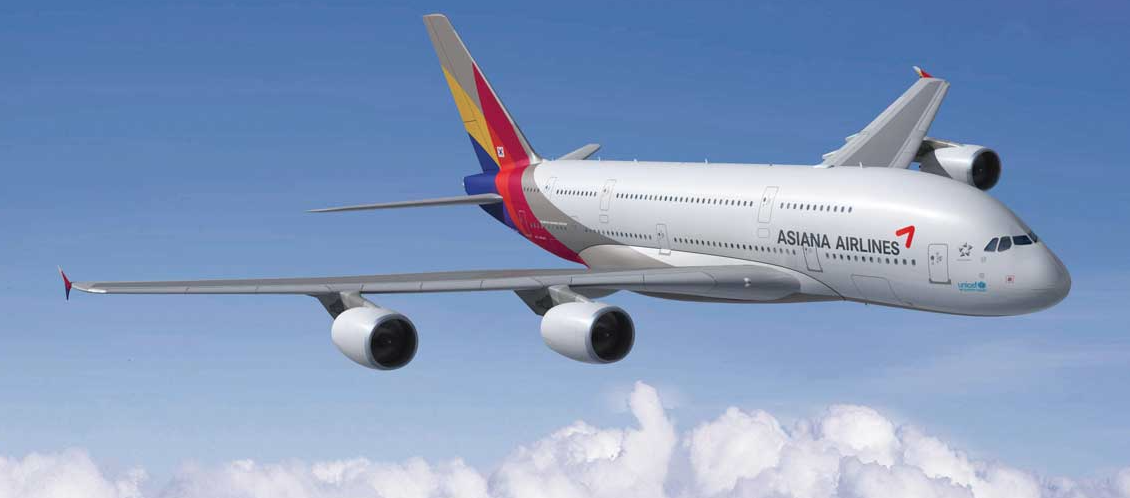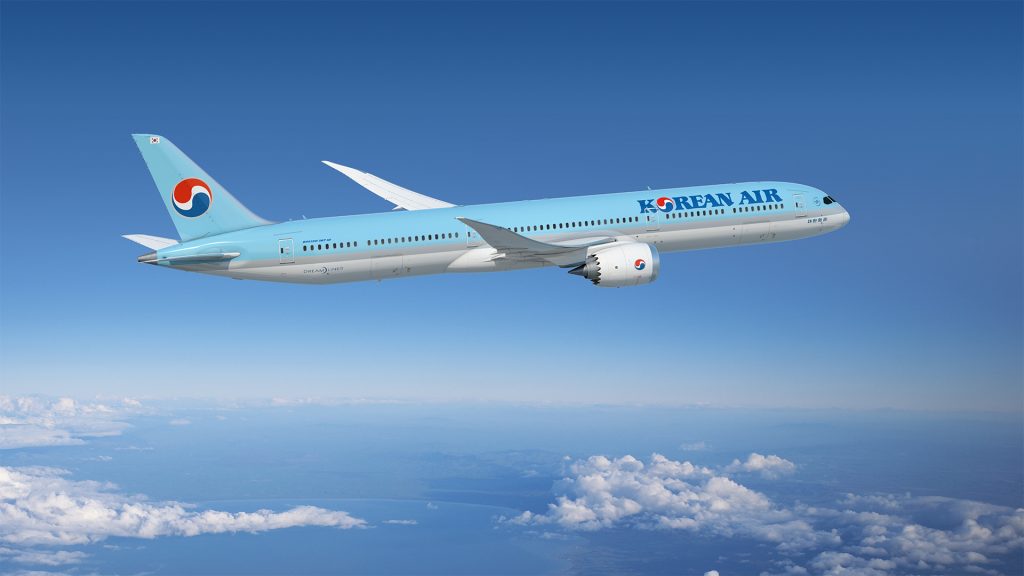SOUTH KOREA. The country’s two largest airlines, Korean Air and Asiana Airlines, today announced plans to merge, confirming initial media reports from Korea last week, writes The Moodie Davitt Report Senior Retail and Commercial Analyst Min Yong Jung*. Korean Air parent Hanjin KAL approved a plan to acquire Asiana in a KRW1.8 trillion (US$1.6 billion) deal. To secure the agreement, Korean Air plans to raise KRW2.5 trillion (US$2.26 billion) and increase its capital by issuing new shares early next year.
Low-cost carriers (LCCs) owned by both companies – Korean Air’s Jin Air and Asiana Airline’s Air Busan & Air Seoul – will also merge to become one carrier.
The new airline will rank seventh in terms of global aviation capacity, according to IATA (Korean Air is currently 19th and Asiana 29th).


In a statement, Hanjin KAL said: “The deal between the top two airlines of Korea will [bring] great momentum to restructure the Korean aviation market amid the unprecedented crisis faced by the global aviation industry due to COVID-19.”
Most of the funds required in the acquisition will be provided by Korea Development Bank, which is following instructions from Korea’s economic ministers.
Ministers from the Ministry of Finance and Economy and Ministry of Land, Infrastructure and Transport as well as financial agencies (Financial Services Commission) and creditors (Korea Development Bank and The Export-Import Bank of Korea) met today to discuss the future of Korea’s aviation industry, and decide on the merger.
According to a public notice by the Korea Development Bank (KDB) – which is the main owner of Asiana following a collapsed deal with Hyundai Development Corporation in September – “the launch of a strengthened national carrier will enhance the competitiveness of the aviation industry”.

The deal orchestrated by the Korean government will see KDB invest KRW800 billion (US$722 million) into Korean Air’s parent company. That will include KRW500 billion in a rights issue and KRW300 billion in exchangeable bonds that gives rights to convert debt to Korean Air equity. This will be converted later to give KDB ownership of Hanjin Kal.
Using the funds provided by the government Hanjin Kal will participate in the KRW2.5 trillion (US$2.25 billion) rights issue noted above. KRW1.5 trillion of the proceeds will be spent by Korean Air to buy new shares of Asiana and KRW300 billion will be used for Asiana perpetual bonds.
Hanjin Kal’s ownership of Korean Air post-rights issue will be 29.2%. Korean Air’s post deal ownership of Asiana Airline will be 63.9%. The expected date of Korean Air’s stock acquisition of Asiana is 30 June 2021.
Hanjin KAL said: “The main reason behind Korean Air’s decision to acquire Asiana Airlines at this time is to stabilise the Korean aviation industry, which is suffering from the COVID-19 pandemic. Considering that Korean Air’s financial status could also be endangered if the COVID-19 situation is prolonged, it [must] restructure the domestic aviation market to enhance its competitiveness and minimise the injection of public funds.
“Once Korean Air completes its acquisition of Asiana Airlines, the airline is expected to be ranked as one of the top ten airlines in the world. In general, countries with a population less than 100 million have a single full service carrier. However, Korea has two full service carriers, which gives it a competitive disadvantage compared to countries like Germany, France and Singapore with a single major airline. However, Korean Air’s acquisition and the expansion of its routes, fleet and capacity will give the airline the competitiveness to compete with global mega airlines.
“The merger of the two airlines is expected to further enhance the competitiveness of the Korean aviation industry with more streamlined route operations and lower costs. More slots secured at Incheon International Airport, a transport hub in Asia, through the consolidation of the airlines, may lead to an increase in joint ventures with global airlines and greater transfer demand, which will also spur the growth of the domestic aviation industry.”
There are strong obstacles that both Hanjin KAL and KDB must overcome for the merger to succeed. The opposition by Hanjin KAL’s largest shareholder KCGI is a challenge to the merger. KCGI has formed an alliance with Hanjin Group Chairman Cho Won-tae’s older sister Hyun-ah Cho and Bando Construction to control 46.71% of Hanjin KAL’s common shares. Their ownership is more than the 41% that Chairman Cho controls and both parties are in a struggle to gain control of the company.
KCGI issued a statement on the merger, saying that KDB’s capital assistance to Hanjin KAL to acquire Asiana Airlines only looks to help the current management maintain ownership and has ignored shareholders rights. It claimed that the deal does not consider business synergy or value and brings a financially troubled Asiana Airline into the Hanjin Group. The deal has serious consequences that threaten staff employment and aviation safety, it added. This may lead to customer security issues and loss of value for equity owners and creditors, it also claimed. KCGI therefore called for a comprehensive review before the decision is made to acquire Asiana Airlines.
KCGI’s reservations are based on the belief that KDB’s investment will help the current management preserve their position in charge of the company.
Korea’s Fair Trade Commission (FTC) will review the deal to assess competition rules. There has already been evidence of relaxed government intervention to help merger deals go through – the FTC approved a deal between budget carriers Jeju Air and Eastar Jet, citing financial struggles faced by the airline because of the coronavirus. Eastar Jet’s likely default and subsequent layoff of employees without the deal convinced the FTC to approve it. KDB may make a similar case, with Korea’s top government officials likely to intervene in favour of the deal.
*As reported in August, Korean Air struck a deal to sell its inflight retail and catering business to Korea’s second-largest private equity fund (PEF) Hahn & Company.
*Note: Korean national Min Yong Jung, formerly based in London and now in Seoul, is Senior Retail and Commercial Analyst at The Moodie Davitt Report. His appointment in June 2019 was the first of its kind in travel retail media. It marked the creation of the Moodie Davitt Business Intelligence Unit, a new division designed to provide a previously unseen level of research and analysis for the travel retail channel.
Do you have research needs related to the Korean and Asia Pacific travel retail and luxury markets? Min Yong Jung can be contacted at minyong@moodiedavittreport.com











